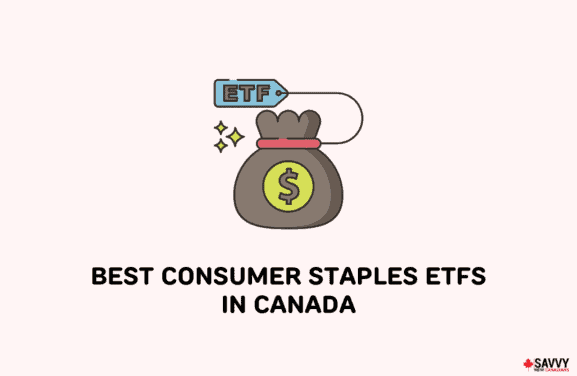Annuities are among the many options available to individuals in their retirement planning.
RRSPs are a great retirement planning tool for building your nest egg; however, they are not forever. By December 31 of the year in which you turn 71, the government requires that you wind up your RRSP account and either:
- Convert it into an RRIF
- Purchase an Annuity
- Cash-out your RRSP
- Or do a combination of the above.
Annuities purchased using funds from an RRSP, RRIF, LIF, or LRIF are considered to be registered annuities. Non-registered annuities can also be purchased using funds from your non-registered accounts, such as savings accounts, TFSA, or GICs.
Types of Annuities and How They Work
An annuity is an insurance product that pays you a guaranteed income over an agreed period. When you buy an annuity from an insurance company, you give them a lump-sum amount (e.g. from your RRSP), and in turn, they pay you a steady income.
You can choose to receive your payments on a monthly, quarterly, semi-annual, or annual basis.
In general, there are two types of annuities:
Term Certain Annuities
These pay a guaranteed steady income for a specific period of time (term), such as 10, 15, or 20 years. If you die before the end of the term, annuity payments continue to go to your beneficiary or estate until the guarantee period ends.
Life Annuities
These provide you with a guaranteed steady income for life. Following death, income payments stop, and your beneficiary or estate does not receive anything.
In addition to the two main types of annuities above, there are additional options that are available and can be purchased with your annuity:
Joint Life and Survivor Annuity: Guarantees income for two annuitants (such as a couple). When one of the annuitants dies, the other annuitant continues to receive payments for life – until they die.
Guarantee period: A life annuity can also be purchased with a guaranteed term option, e.g. guaranteed payments for 1 to 25 years. If the annuitant dies before the end of the guaranteed period, the remaining payments will go to their beneficiary or estate.
Inflation Protection: Some life insurance companies allow you to add inflation protection to your annuity. This indexes your annuity payments to inflation, so you receive more as inflation rises.
Guaranteed Minimum Withdrawal Benefit (GMWB): Also known as a variable annuity, GMWBs guarantee a minimum withdrawal from your portfolio regardless of poor market conditions. You may also benefit from periods of excellent market returns, and it’s essentially a hedge against downside risk.
Adding on any of these options will generally lower your initial annuity payments or, in the case of GMWB, come with a higher fee.
Related: Understanding the Old Age Security Pension

Annuities – How Much Will You Receive?
When computing how much annuity income you will receive, insurance companies factor in the following:
- Your Age (and that of your spouse if Joint Life)
- Gender
- Health Status
- Life Expectancy (from all three above)
- Investment Amount
- Interest Rates
- Options chosen: guaranteed term, joint/survivor annuity
Age and gender are linked to life expectancy. Men generally have a lower life expectancy than women. For example, the life expectancy for men in Canada is 79.3 years and 84 years for women. These numbers increase as you grow older.
The older you are when you purchase an annuity, the higher your annuity payment. This is because your life expectancy is now shorter.
Women generally receive lower monthly annuity payments than their male counterparts (of the same age) because they have longer life expectancies.
A snapshot of potential annuity payments for a single life male as of 2017 by some insurance companies based on $100,000 in funds and 65 years of age are as follows:
| Financial Institution | Monthly Income |
| BMO Insurance | $542.42 |
| Canada Life | $514.31 |
| RBC life Insurance | $529.23 |
| Manulife Investments | $504.66 |
| Great-West Life | $514.31 |
Calculators are available online to enter your details and get an estimate. Examples include these ones by Sunlife and RBC Insurance.
Is An Annuity Right For You?
An Annuity is not as popular as its close cousin – the RRIF. Deciding on what works best for you will depend on a combination of factors, including:
1. Flexibility: Once you set up an annuity, you’re locked in and unable to change the terms, withdraw your funds, or close your account without some hefty fines.
For those who wish to have some flexibility or control over what their funds are invested in, how much they can withdraw, etc., an RRIF offers more flexibility.
2. Peace of Mind: An annuity can guarantee a specific and steady income for life and put your mind to rest. You can forget about market crashes, market volatility, and outliving your money. Life annuities protect against longevity and investment risk.
Additionally, if your life insurance company is insured by Assuris, and they fail, Assuris guarantees that your payments up to $2,000/month or 85% of your guaranteed monthly income (whichever is greater) is protected.
3. Estate Protection: RRIFs can easily be transferred to a surviving spouse’s RRIF or wrapped up and included in the deceased’s estate. For annuities, payments to a surviving spouse are only available if you have a guarantee period option or have set it up as a joint annuity/survivor option.
4. Health and Life Expectancy: Not everyone knows how soon they will die. However, for individuals who have a qualifying condition (heart condition, cancer, diabetes, stroke) that significantly lowers their life expectancy, an “impaired annuity” is an option – this pays out a higher income.
5. Fees and Guarantees: Annuity options come with fees or lower payments. Depending on the option you decide to go for, your monthly payouts may be significantly reduced. Fees can also be much higher for products like the Guaranteed Minimum Withdrawal Benefit (GMWB).
Closing Thoughts
It’s good to have options. Following winding up your RRSP, you can decide to buy an annuity, convert it into an RRIF, or take out cash.
Retirement planning should always be done with the whole package in mind. Consider talking to a financial advisor when planning ahead for your retirement. If you choose to purchase an annuity, ensure you shop around for the best rates!
Also Read:







Yes, Steve. It’s all about options when it comes to retirement planning. The more options you have, the better your chance of success. Personally, I’m not too keen on annuities as a retirement tool early on, but it may be worth thinking about in the later years of retirement.